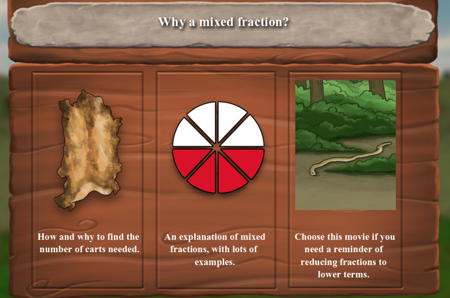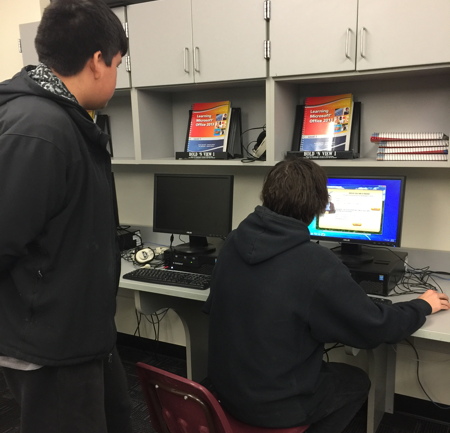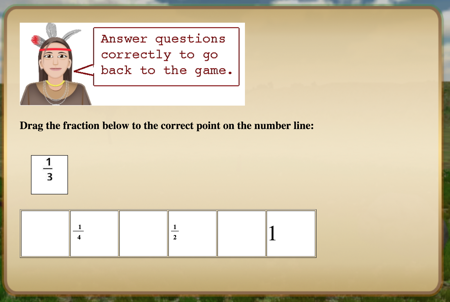Being snowed in at the Spirit Lake resort, with nowhere to go, I was reading a book, Startup Mixology, during lunch. The author discusses the importance of finding a co-founder with whom you can be completely honest. He stressed, you don’t need to always agree but you do need to be able to openly discuss your disagreements without holding back.
One area where my co-founder, Maria, and I frequently have to hash out disagreements is when a game like Fish Lake is ready for release in the wild. While I have said about 4,456,832 times
“Done is better than perfect.You don’t want to spend all of your time and money on development, do no marketing and end up with a perfect game no one knows exists.”
Maria counters with,
“You don’t want to go to a great deal of effort to get people to try your games only to get the response, ‘Meh, it was all right.'”
Dennis, the third co-founder, often uses the phrase ‘premature optimization‘, in other words, don’t spend a lot of time and money trying to make things perfect until you are sure those ‘things’ are what people want.
Let me give you an example of this (because you know I’m going to) … we have been working very hard on polishing our game, Fish Lake, to be released on Steam on December 16. In the meantime, I wanted to install what we had done to date at schools because it is much, much better than our earlier releases, thanks in large part to the fabulous artwork from Stephen Gladue.
If you are in a rural area where bandwidth is limited (see top image above) it can take 20 minutes or more to download 700MB, which is about the size of Fish Lake. Her concern for our users is that they would download a game we are improving literally EVERY DAY and a week later, the game would be much better.
My concern was that since we are improving the game literally EVERY DAY, the game they downloaded over the summer or at the beginning of the school year is not nearly as cool as the one we have now.
There is also the purely selfish part of it. Every time I meet with students and teachers, I learn more about what makes our games effective. It is a chance for me to see if the games are too difficult, not engaging enough.
Some people may think that our research is not done to their “standards”, like asking students to “think aloud” using a strict protocol. My research is more the lurking type, watching and listening as students play the game. For example, when a computer in the lab had a hardware problem, and the student exclaimed to the teacher,
“Aw, I was just getting to the deer hunting part! I was looking forward to that!”
It gets filed away in my notes,
“Student liked deer hunting level.”
This may seem pretty obvious, but I have found, through years of research and thousands of testers in dozens of schools that what we THINK is obvious often is not. What may be interesting or confusing for an adult in the office is not necessarily the same for a student in school.
For example, as adults, we may ‘over-think’ problems. Let me give you an example (yes, another one!). There is a problem in the game that looks like this:
One of our adult testers pointed out that it could be interpreted as each box is 1/6 in which case, all of the fractions are pretty much in the wrong place. Now, I had seen that as an ordinal scale (note, there is no zero) and thought “1/3 goes between 1/4 and 1/2”. None of the students seemed to have trouble solving this problem and none of the teachers reported it was confusing.
You could argue that it is fine practice for standardized testing where one is asked to pick the best available answer (which is not always the same as the best possible answer – there’s a life lesson for you).
Over the years, there have been many points where our adult testers have said,
“A fifth-grader might find this confusing ….”
Before spending a lot of effort trying to fix whatever this is, I watch for that part of the game when actual fifth-graders are playing it and usually, nope, it’s not a problem at all.
On the other hand, I thought it might be a more fun activity – even if only 1% more fun – if the students could put the fractions in order from smallest to largest. It would also emphasize the point of the larger the denominator the smaller the unit. I can think of a number of activities to drill this concept home that wouldn’t be ‘drill and practice’. So …. that is what I’ll be working on for the new, new release of Fish Lake and then back to testing it again.
Updates are always free. If you have lost your link, email info@7generationgames.com – we’ll look you up in our database and send you a new one.
WHAT HAPPENED TO OUR ARTIST, JUSTIN FLORES?
We have had some inquiries from players who really like the new artwork by Stephen but they really liked the original artwork by Justin Flores, too. (What no one liked was those pages that looked as if someone cut and pasted clip art because that is exactly what I did when I did not have artwork.)
Never fear, we did not fire Justin, he did not quit in a huff over artistic license. (What does a huff look like, anyway? Maybe he can make me a picture of it.)
No, Justin is not here temporarily because he went from creating animated babies

To the real thing:
 Once he gets caught up on sleep, he’ll be back knocking out the illustrations for Spirit Lake, which is our next major update.
Once he gets caught up on sleep, he’ll be back knocking out the illustrations for Spirit Lake, which is our next major update.




